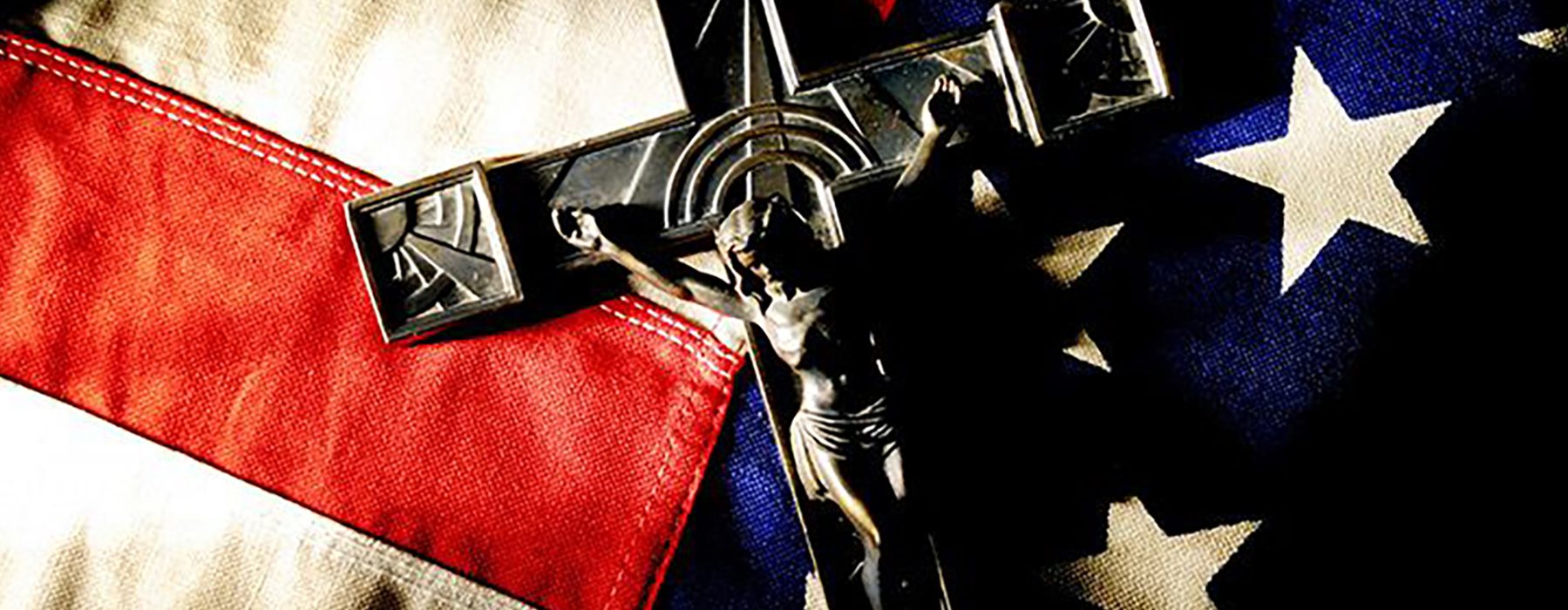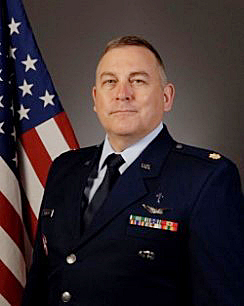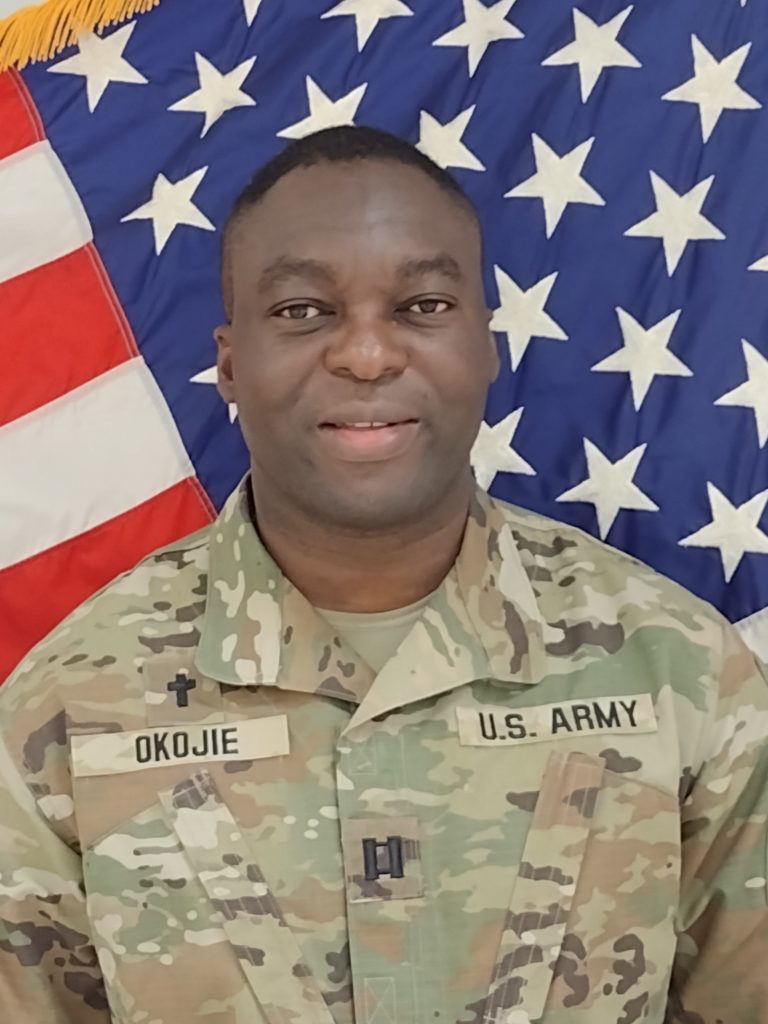November 1, 2022 // Diocese
Military Chaplains: Charging the Gates of Hell with their Troops
Only one percent of the population in the United States shoulder the load of protecting the other 99 percent of Americans through serving in the military. In 1954, Nov. 11 officially changed from Armistice Day – commemorating the end of World War I – to Veterans Day, a day to honor all those who served in the armed forces (U.S. Department of Veterans Affairs website).
It is sometimes hard for those who have not served to understand the lifestyle and mentality of those who have. The spiritual needs of servicemembers vary greatly from civilians. Long deployments, separations from family members, stress and trauma, and dealing with losses in combat can have an incredibly negative impact on a soldier or airman. Suicide rates in the military are typically much higher than civilian rates.
Military chaplains serve the spiritual needs of these men and women. Two priests within the Diocese of Fort Wayne-South Bend who fill this role, one a longtime veteran, the other a newly commissioned officer, spoke with Today’s Catholic about their experiences.
Father David Meinzen, Major, Indiana Air National Guard
One of the chaplains at the 122nd Fighter Wing in Fort Wayne, Father David Meinzen, a priest in the Byzantine Rite (in full communion with Rome, where priests can be married under certain circumstances) has a unique understanding of the issues military members face. He has more than 20 years of military service under his combat boots. Not all of those years were in the chaplaincy, however, or even in the Catholic faith.
Father Meinzen’s journey to Catholicism intertwined with his military service. In his younger years, he joined the Army Reserves with “mercenary” reasons; namely, to pay for his tuition at a private Christian college in Illinois. Two years later, he was sworn in as a second lieutenant and began officer training. His job specialty was aviation: learning to fly UH-1 Iroquois (“Huey”) helicopters during the Gulf War. “It was a bit of an initial intense time,” he admitted. His Vietnam veteran-era trainers were tough and at one point, he thought he was going to fail out of helicopter school. “Learning to fly blind” became a life lesson for him, touching on his Christian faith to lean on Christ.
After completing his training, Father Meinzen moved with his wife to Fort Wayne to enroll in seminary – for the Lutheran faith. However, “We didn’t stay Lutheran.” He shared the “soul-searching” experience that led them to Eastern Orthodoxy. On his way to becoming an Eastern Orthodox priest, he decided to explore the chaplaincy. “I kind of made up my mind that I was more comfortable as a chaplain in the military. That had become my love — theology and the idea of sharing the goodness of God in pastoral work.”
He switched from the Army Reserves to the Army National Guard and served both in Indiana and Michigan as a chaplain. At the request of his commander, he traveled to military units stationed around Michigan “to do wellness tours” where he was able to put his “clinical pastoral experience” to work helping the soldiers. Returning to Indiana to serve as chaplain at Camp Atterbury, he did serve a brief tour of duty in Afghanistan in 2010 when an Orthodox priest was needed to serve Dormition Liturgy.
“During that time and even at Camp Atterbury, God kept working on my heart because I kept running into these Catholic chaplains, who were really, really kind to me and excited to find out I was an Orthodox priest. … And God kind of used that to soften my heart,” he said. He began reading the Catechism of the Catholic Church and discovered the Byzantine Catholic Church. Contacting the Ukrainian Eparchy in Chicago, Father Meinzen became a member of the Catholic Church and an Eastern Rite priest.
Now he serves as Pastor of St. Andrew’s Eastern Catholic Mission as well as a one of the chaplains for the 122nd Air National Guard and the VA hospital, all in Fort Wayne. “All my years of experience, even in the reserve component was varied enough … that I’m able to relate to the veterans well,” including the cultural shifts various generations experienced.
While at Camp Atterbury, Father Meinzen saw suicide rates skyrocket among the soldiers. Part of his job was working with other professionals to identify those most at risk and save as many lives as possible.
“Working that close, on the edge of the reality of life and death” woke him up to the everyday effects of evil in the world on humanity.
“(Christ) came truly to open our eyes and hearts to this trauma we are living through, this created life He’s given us that, because of the fall, is a fight with the enemy that hates us, the enemy that rebelled against God because of His love for us. And that is a real, day-to-day thing.”
He sees military service as a training ground for parish life that young priests might pursue. This gives them the opportunity to connect more readily with the veterans in their congregations, but also civilians who have lived through traumatic experiences. As a priest, he emphasizes the importance of spiritual warfare as well as actual warfare. “If we clergy are not prepared to go into hell with our Lord for other people who our Lord has died for, then we’re not living our vocation.”
“We have a duty to walk into every place hell has spread itself and darkness has imprisoned people in whatever ways; we have a duty to walk into that darkness with them, carefully, with confidence that the Holy Spirit is with us – the power of Christ bringing His light into that place, and into our own lives wherever we might be wounded and dark inside.”
Father Julius Okojie, Captain, US Army Reserves
Father Julius Okojie has refined his answer to the question of why he became a chaplain for the 472nd CBRN Battalion in Chicago. “When I was a kid, there were three things I wanted to be. I wanted to be a priest, a soldier, and a surgeon,” he said. His childhood pastor in Nigeria was an army chaplain and he wanted to emulate that. He was ordained to the priesthood 13 years ago and came to Indiana to study at the University of Notre Dame, maintaining dual citizenship with his home country.
After two years working through the process of becoming a military chaplain, Father Okojie received his commission and first assignment.
His work is important because, he explained, “We have a huge population of soldiers who are Catholics, but we have a limited number of Catholic priests who are chaplains.” The Archdiocese for the Military Services, USA only endorses ordained priests as Catholic chaplains, so unlike Protestant chaplains, this severely limits the numbers of Catholic chaplains in the military. Father Okojie estimates that for about 1.8 million Catholics across six branches of the service, there are little more than 200 priests – far outnumbered by their Protestant counterparts and the Catholic population they serve.
In addition to the roughly 1,600 members of his flock at St. Thérèse, Little Flower Parish in South Bend, he has another flock of nearly 500 soldiers in the Chicago area. Since he is chaplain for both Catholic and non-Catholic soldiers, his job is to provide religious rites and advise in spiritual matters. “You can only perform those religious rituals that your endorser approves. Like in my case … I can’t do anything that goes against Catholic consent. So, if a soldier requests something that’s contrary to my faith, then I would not perform it. I would look for a chaplain or someone who would provide those services … And of course, you can have issues of conscience, but I should be able to love this person and care for them, regardless,” he continued. “I can’t do it, but I will still try to be there for them.”
His primary task as a new chaplain is to build relationships with his soldiers, “so they’ll trust me.”
This includes going where the soldiers are to host Bible studies, counsel soldiers in the darkest hours of their lives, and simply spend time with them. He has even requested his portable chaplain kit for future use in providing the sacraments in deployed locations.
“They say the chaplain ministers to the soul of the Army,” he said. For Father Okojie, that means “ministering to very young soldiers, still trying to figure out where they belong, their place in the world, and trying to know who they are. I feel like is a very good opportunity for me to help shape them in that way in the future.”
And if the day comes when Father Okojie is called to leave his South Bend flock to deploy with his troops, he said, “The Lord will take care of St. Thérèse.”
The best news. Delivered to your inbox.
Subscribe to our mailing list today.








